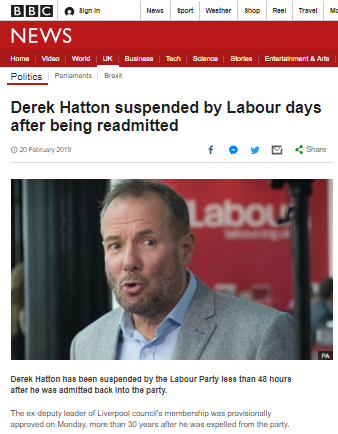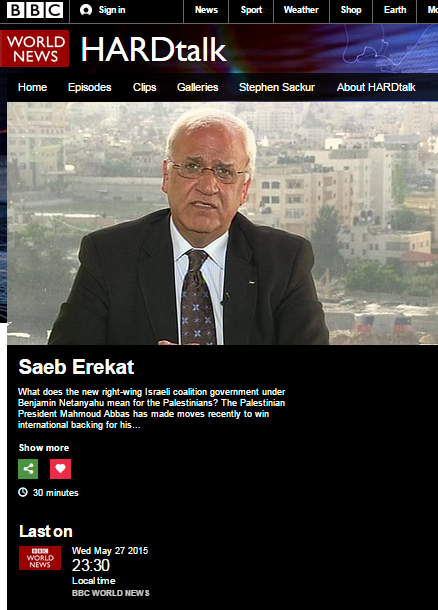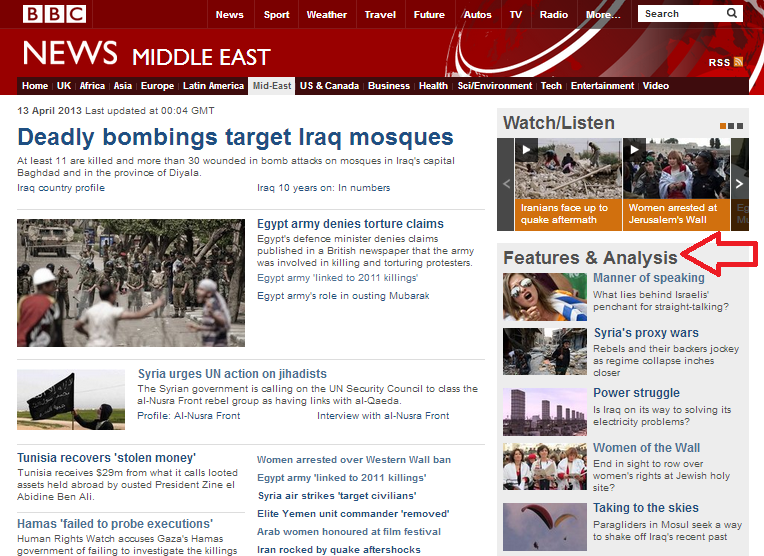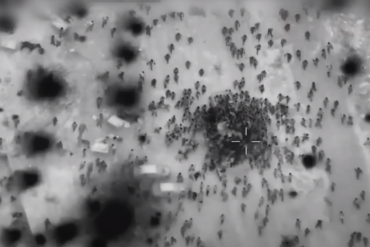The February 13th edition of the BBC Radio 4 news and current affairs programme ‘Today’ included an item (from 18:41 here) which was introduced by presenter Nick Robinson as follows: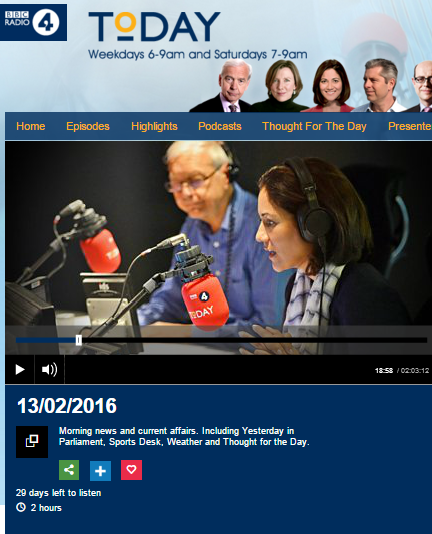
“When three members of a Palestinian family were killed in an arson attack last summer, their deaths made headlines around the world. Now two Israelis have been charged with the killing of an eighteen month-old and his parents. It’s triggered angry protests because interrogation techniques normally used only against Palestinian security prisoners were employed against the Jewish Israeli suspects. These techniques include amongst others sleep deprivation, use of stress positions and the denial of the right to see a lawyer. Our Middle East correspondent Kevin Connolly has been examining the case.”
In fact the suspects were indicted six weeks prior to the appearance of this report rather than “now” as Robinson claimed.
Connolly’s report opened with sounds from a demonstration held in Tel Aviv in late December 2015.
KC: “In Tel Aviv a little play-acting with a purpose. A group of far-Right Jewish political activists are re-enacting the interrogation of a suspect at the hands of the Shabak – Israel’s internal security agency. The blindfolded suspect is tied to a bed frame and beaten while the interrogators shout questions. It’s shocking stuff and a banner held by a protester in the background gives a clue as to why some Israelis are shocked. A Jew, it says, doesn’t torture a Jew.”
Listeners then heard an unidentified voice say:
“They tried to force him to admit in this crime that he was not…eh…involved in by torturing him, literally.”
KC: “This is the voice of the father of a teenager who is one of two young settlers charged in connection with an arson attack in the Palestinian village of Duma which killed three members of the Dawabshe family. The case is thought to be the first in which enhanced interrogation techniques have been used against Israeli suspects and the teenager’s father is angry at their use against his son and sceptical about their effectiveness.”
Father: “He was beaten up. He was…ah… sitting on a special chair that’s called a torturing chair. While he was screaming with pain and begging for…from his investigators to let him go they said fine – if you admit in this murder in Duma we’ll let you go.”
Connolly continued with a stereotypical portrayal of the supposed views of the hundreds of thousands of people the BBC labels “settlers” – for which he did not produce a source.
“For settlers and for their supporters the decision of the Israeli state to use the weapon of enhanced interrogation is a shock and they’ve responded with shock tactics of their own – like this demonstration outside the house in Jerusalem of Yoram Cohen, the head of Shabak.”
That demonstration actually took place in December 2015 too. Connolly’s report then took a bizarre turn with the amplification of unfounded opportunistic allegations of Israeli racism from an official at the PLO’s Negotiations Affairs Department.
KC: “Elsewhere though the issue is viewed through different lenses. Palestinians say the same techniques have been used against them for decades. A clear double standard says Xavier Abu Eid of the PLO.”
XAE: “It’s basically that we’re not seen as equals; that’s a main point. We’re not equals of the [unintelligible] state. We’re not equals of the [unintelligible] equal rights. We’ve seen a transformation in Israeli society that it’s way more Right-wing and closer to religion. Many Israelis would justify what’s going on just by saying that we’re gentiles or non-Jews living here: that we don’t have the right to be treated under the same laws. Others would say no: you have the right to be treated under the same laws, however we have a special conditions that make us do this or that.” [emphasis added]
At no point in this report were listeners told that the Israeli High Court of Justice outlawed the use of ‘moderate physical pressure’ during interrogations in 1999. At no point were they informed that the provisions for exceptions to that ruling in the case of an impending threat to civilian lives depend not on the suspect’s nationality or ethnic identity but to the practical issue of the threat he poses to others. Abu Eid’s baseless claims of racist discrimination and “double standard” are therefore an impediment to audience understanding of this story which – for reasons best known to themselves – the producers of this item nevertheless chose to amplify.
Connolly’s item continued with promotion of the view of a political NGO.
KC: “The arson attack on the Palestinian village of Duma was a shocking crime and there was huge pressure on the authorities to identify suspects and to bring charges. But there are voices raised inside Israel against the use of anything that approximates to torture – whatever the euphemism used to describe it. The voice of Yael Stein from the human rights group B’tselem is among them.
YS: “It doesn’t matter if it works. It can be the most effective way to know what happened. It may be the most effective way to prevent future attacks. It doesn’t matter. I mean there are things that a society must say – I mean there are things that are not done. Beating people or torturing people or ill-treating people during interrogation is something that society that we live in should not accept.”
Listeners were not informed that in this specific case the authorisation of the use of special interrogation methods was given by the Attorney General after seventeen days of questioning during which the main suspect refused to talk to investigators. One can of course well imagine the tone the reports from Kevin Connolly and his colleagues would have taken had the investigation into the terror attack in Duma not resulted in the indictment of suspects.
Connolly closed his report as follows:
“The purpose of all the protests of course is to make the treatment of the Israeli suspects in the Duma arson attack a central issue in the case. And you can expect the arguments that have been rehearsed on the street to be played out again in court when it comes to trial.”
Significantly, Connolly failed to include in his report any official responses to the allegations made or any alternative views of the story. After Connolly’s report ended, Nick Robinson told listeners that:
“Israel has said that the questioning of the suspects in that Duma arson case was carried out under full judicial supervision and it also says it doesn’t draw any distinction between Jewish and Arab suspects in the investigation of terror offences.”
That short statement however obviously did little to balance the messaging and lack of relevant information in Connolly’s report and it certainly did nothing to relieve audiences of the inaccurate impressions received as a result of the inclusion in this report of Xavier Abu Eid’s baseless and immaterial smears.

